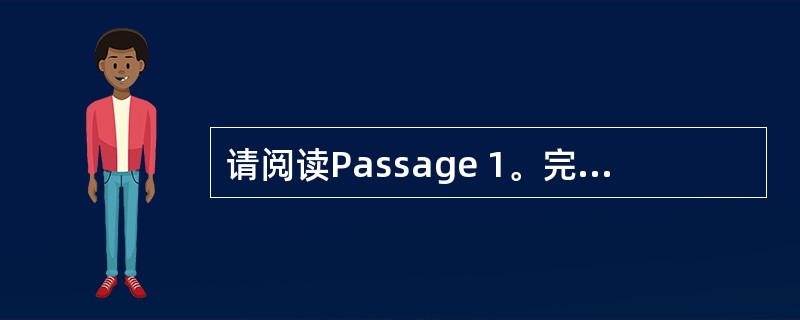[单选题]
请阅读Passage 1。完成下小题。
Passage 1
"THE SERVANT"(1963) is one of those films that it is impossible to forget. The servant ex-ploits his master′s weaknesses until he turns the tables: the story ends with the a cringing master ministering to a lordly servant. It is hard to watch it today without thinking of another awkward rela-tionship-the one between business folk and their smartphones.
Smart devices are sometimes empowering. They put a world of information at our fingertips.
But for most people the servant has become the master. Not long ago only doctors were on call all the time. Now everybody is. Bosses think nothing of invading their employees′ free time. Work in-vades the home far more than domestic chores invade the office.
Hyperconnectivity exaggerates the decline of certainty and the general cult of flexibility. Smart-phones make it easier for managers to change their minds at the last moment. Employees find it ever harder to distinguish between "on-time" and "off-time"--and indeed between real work and make-work. None of this is good for businesspeople′ s marriages or mental health. It may be bad for busi-ness, too. When bosses change their minds at the last minute, it is hard to plan for the future.
How can we reap the benefits of connectivity without becoming its slaves? One solution is dig ital dieting. Banning browsing before breakfast can reintroduce a small amount of civilization. Ban-ning texting at weekends or, say, on Thursdays, can really show the iPhone who is boss.
The problem with this approach is that it works only if you live on a desert island or at the bot-tom of a lake. Leslie Perlow of Harvard Business School argues that for most people the only way to break the 24/7 habit is to act collectively rather than individually. One of the world′s most hard-working organisations, the Boston Consulting Group, introduced rules about when people were ex-pected to be offiine, and encouraged them to work together to make this possible. Eventually it forced people to work more productively while reducing burnout.
Ms Perlow′ s advice should be taken seriously. The problem of hyperconnectivity will only get worse, as smartphones become smarter and young digital natives take over the workforce. But ulti-mately it is up to companies to outsmart the smartphones by insisting that everyone turn them off from time to time.
The author mentions the film in the first paragraph in order to __________.
A.introduce the film to people
B.introduce the topic
C.review it because it is unforgettable
D.remind people of another similar relationship
参考答案与解析:
-
相关试题
